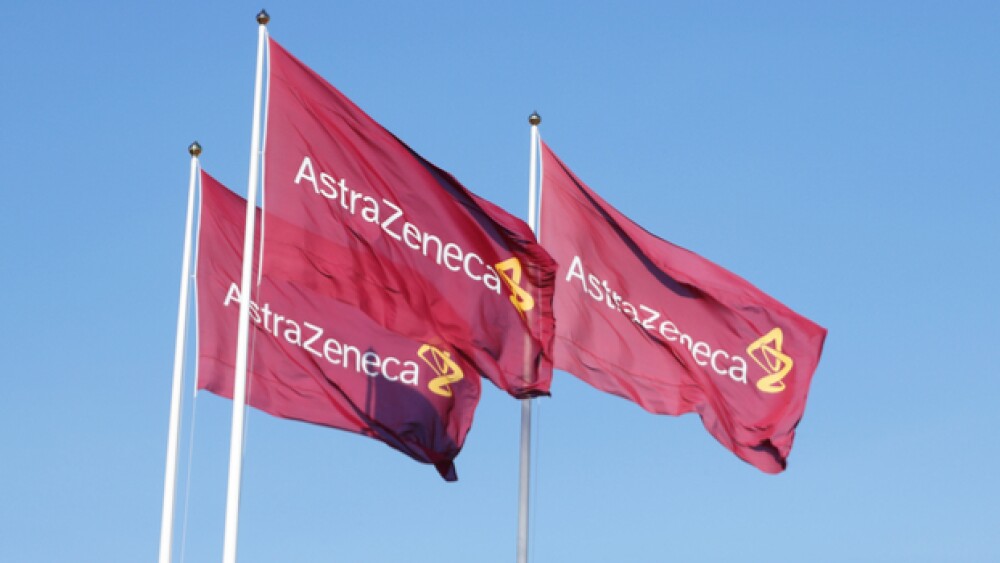Investors are showing some love to AstraZeneca on this Valentine’s Day after the company posted strong year-end results. Shares of AstraZeneca are up more than 6 percent in premarket trading on the strength of the company’s financial results.
Roland Magnusson / Shutterstock.com
Investors are showing some love to AstraZeneca on this Valentine’s Day after the company posted strong year-end results. Shares of AstraZeneca are up more than 6 percent in premarket trading on the strength of the company’s financial results.
AstraZeneca Chief Executive Officer Pascal Soriot is excited about the future of the U.K.-based pharmaceutical company. He said this year will be one that focuses on “continued pipeline delivery and flawless commercial execution.”
Those comments came after the company posted its strongest year-end sales results in the past 10 years. The company closed out the year with a 4 percent increase in product sales to $21 billion. Those sales results were driven by new medicines, which saw revenues increase 81 percent, the company said. Oncology medicines were also important to the company’s annual results. Sales of cancer treatments increased 50 percent during 2018 to $6 billion, with Tagrisso and Lynparza both doubling in sales the company said. Tagrisso pulled in $1.86 billion and Lynparza generated $647 million. The company said that Tagrisso is slated to be its biggest-selling medicine in 2019.
Imfinzi, the company’s PD-L1 inhibitor, also saw strong sales, increasing to $633 million, a massive jump over 2017, when the drug brought in just $19 million. Brilinta, a blood thinner used in patients with acute coronary syndromes, generated $1.32 billion. The diabetes drug Farxiga pulled in $1.3 billion. In its first full year of being on the market, Fasenra, an add-on treatment for asthma, saw revenues of $297 million, the company said.
“The performance of our new medicines demonstrated the ability of our commercial teams to convert the pipeline into successful medicines,” Soriot said.
In addition to those medicines performing well, the company reported that sales in emerging markets were also stronger, growing by 12 percent. Revenues in China grew by 28 percent, the company said.
The positive growth for the company comes after AstraZeneca initiated a restructuring to support innovation and commercial successes in its main therapy areas. The restructuring brought its development branch MedImmune into the parent company’s organization. That restructuring also included a shakeup of its leadership. Chief Medical Officer Sean Bohen announced plans to leave the company and Soriot tapped José Baselga as the new head of oncology research and discovery. Soriot said the company has refined the organization in order to position itself for the next phase of growth. Among the changes is the development of R&D and commercial units in the company’s biopharmaceuticals (cardiovascular, renal & metabolism (CVRM) and respiratory) area and in oncology. Soriot said the changes are designed to integrate research and development and accelerate decision-making and the launches of new medicines. The changes initiated will consolidate the company’s pipelines, which Soriot described as “one of the most exciting and productive pipelines in the industry.”
“We are also enhancing our commercial units to increase collaboration with our R&D organization, enabling greater commitment to our main therapy areas; we want AstraZeneca to be more agile, collaborative and focused as we enter a period of sustained growth,” Soriot said in a statement.
AstraZeneca’s pipeline did take some hits, though. The company quietly shuttered a few research programs, including studies that were focused on the combination of Imfinzi and tremelimumab, a CTLA-4 antibody, as a second-line treatment for head and neck cancer, as well as a study of the duo as a first-line treatment in non-small cell lung cancer. The company cut an Imfinizi-based combination treatment for diffuse large B cell lymphoma as well.
Looking into 2019, Soriot said the company’s strategy and plans remain unchanged. Sales growth and a focus on cost management are anticipated to drive the company’s operating profit.
“I’m pleased that we are fully on track to meet these commitments as we build a sustainable level of growth and a pipeline that is benefitting more and more patients around the world,” Soriot said in a statement.





